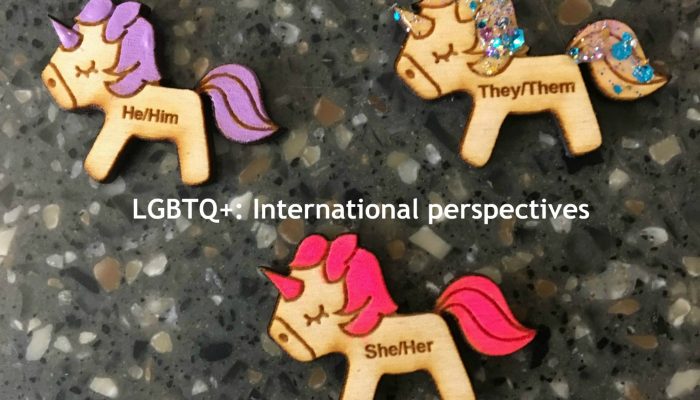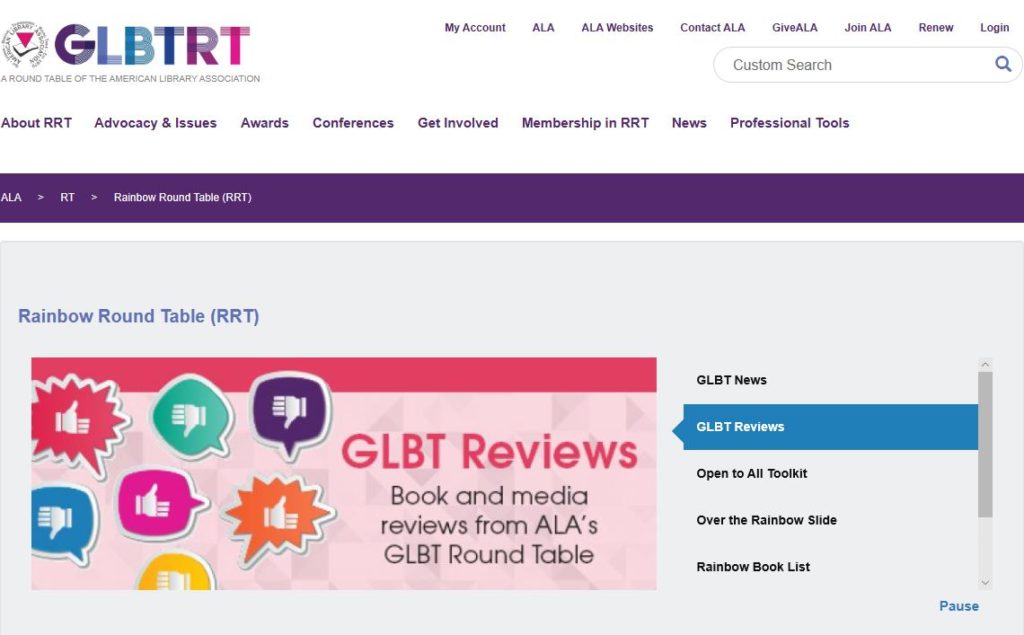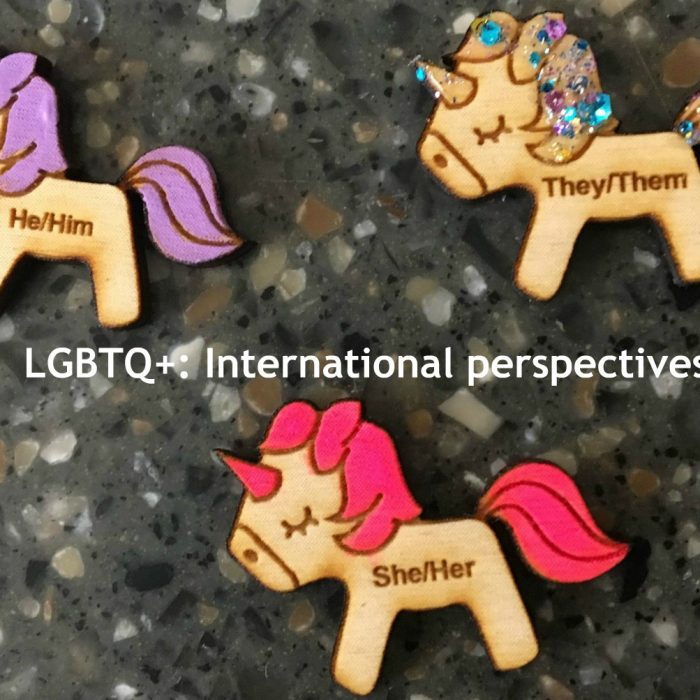Are there hard-and-fast rules for libraries engaged with LGBTQ+ communities? While there are areas where there should be clear guidance, there are others where context is more important.

Organizational support
In the fourth article in this limited series of conversations, we (Amanda Wilk and John Vincent) look at the role of professional bodies in supporting LGBTQ+ library staff and library provision.
Throughout the series, we will use the acronym LGBTQ+ to refer to lesbian, gay, bisexual, transgender, queer/questioning, and other identities within our community. We would like to acknowledge that other acronyms are also used and that sexual and gender expressions are diverse and impossible to represent within the confines of five letters. For more information and terminology related to LGBTQ+ identities, you’ll find that the 519’s Glossary of Terms is a valuable resource.
We would love to engage with you, and we welcome your comments and feedback below.
In this article, we are discussing organizations available in our regions to support LGBTQ+ library workers and library services.
John Vincent (J.V.)
Although there have been a number of U.K. LGBTQ+ library organizations since the 1970s (more on this in a moment), none of these approached the U.S. model where, in 1970, the American Library Association (ALA) established a Task Force on Gay Liberation (now the Gay, Lesbian, Bisexual, and Transgender Round Table, known as the Rainbow Round Table, a formal part of the ALA structure).
In the U.K., we have had the Gay Librarians Group (approx. 1973–1979), the Lesbian & Gay Librarians Group (1985–1990) and the Burning Issues Group (1994–2000). However, none of these was formally allied to the then Library Association (now the Chartered Institute of Library and Information Professionals [CILIP]) in the way that the U.S. Rainbow Round Table is to the ALA, and each group disappeared, partly because of a lack of resources (people and money) to keep going. There is a brief summary of some of this history in the working paper Lesbians, bisexuals, gay men and transgendered people (1999), produced as part of the Open to all? research.
There have been regular calls since the 1970s to set up something in the U.K. that would be similar to the U.S. ALA model. Earlier this year, CILIP established a BAME Network “[…] to provide a forum for librarians and information professionals from Black Asian and Minority Ethnic backgrounds to share their experiences, support each other and network.”
At the 2019 CILIP conference, in Manchester, there was an enthusiastic response to a diversity seminar. As a result, CILIP has launched a new LGBTQ+ Information Professionals Network, which will provide a platform for networking and career development for librarians and information professionals who identify as LGBTQ+. This will begin—as the BAME Network did—with the setting up of a steering group, and work to establish that is underway. (Binni Brynolf and I have been nominated co-chairs of the steering group.)
This is an exciting development because it recognizes—at last—the need for a CILIP lead in this area. I know things are different in Canada. Are there countrywide or regional LGBTQ+ organizations?

Amanda Wilk (A.W.)
That is incredibly exciting news about CILIP, John!
In Canada, the landscape is somewhat similar in that we do not currently have a professional organization that supports LGBTQ+ staff and services for libraries across the country. The British Columbia Library Association (BCLA) does have a Lesbian, Gay, Bisexual, Transgender and Queer Interest Group. Their mission is:
To share information on LGBTQ issues, events, online resources, recommended books, films and music, and more with library folks across the province.”
But this is the only professional governing body within a Canadian library organization that I am aware of.
My go-to resource for information and for professional tools related to LGBTQ+ services in libraries is the Rainbow Round Table out of the ALA. In particular, I have made use of their Open to All tool kit as a starting point for looking at ways to bring about LGBTQ+ inclusion in library environments.

That said, I think the existence of a Canadian-focused LGBTQ+ group that supports libraries across the country would be of great value. Having an organization that focuses on Canadian-specific resources, materials, and advocacy would be incredibly helpful. However, if such a group were to be formed, I also think it is important that it include expertise from professionals outside of libraries. According to statistics, again compiled by the ALA, in 2009 and 2010, 88% of accredited librarians were white. Though these stats are American, and a little out of date, the need to increase diversity within librarianship remains apparent.
If an LGBTQ+ organization that supports Canadian libraries were to exist, it is incredibly important that it be intersectional in its approach to diversity and that voices from all backgrounds be at the table. This would include differences not only in race and ethnicity but also in age, gender, sexual orientation within the LGBTQ+ umbrella, physical and cognitive ability, geographic location within Canada, income, and religious beliefs.
J.V.
I completely agree. We’re hoping that the CILIP LGBTQ+ Steering Group will begin to create this intersectional approach here (for example, we’re aiming to work closely with the BAME Network). So far, it’s very early days!
We’ll keep readers up to date with developments via this column (whilst we are still writing it!).
John Vincent coordinates “The Network – tackling social exclusion,” a U.K.-based network of cultural and heritage organizations that work towards social justice.
Amanda Wilk is a manager at the Country Hills Community Library, Kitchener Public Library. She can be reached at amanda.wilk@kpl.org.
